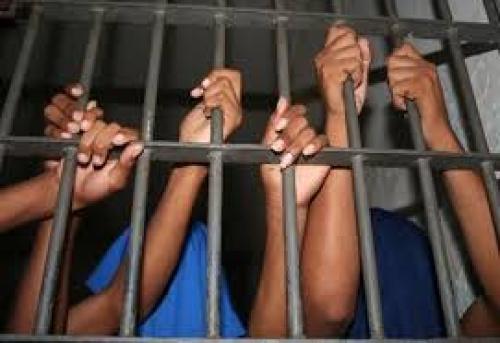UN refugee agency plans to reduce spending by a fifth, close Southern Africa office as cuts bite
Ombudsman paints grim picture of Mozambican prisons, police cells – AIM report

Mozambican jails and police cells are a threat to the lives and health of those held prisoner there – that is a clear warning from the annual report from the country’s ombudsman, Jose Abudo, given on Thursday to the Mozambican parliament, the Assembly of the Republic.
In the most damning section of his report, Abudo says that all the prisons and police cells he visited in the period covered by the report (April 2015 to March 2016) had serious physical problems, including leaking roofs, lack of ventilation, and toilets where the flush does not work.
In the prison in the northern city of Lichinga, the prisoners are kept indoors 24 hours a day, because the prison wall is so low that escapes are feared. With no exposure to sunlight, the prisoners are in danger of vitamin D deficiency which could weaken their bones and prevent blood from clotting, Abudo pointed out.
In several police cells visited in Niassa, Cabo Delgado, Nampula and Tete provinces, the floors on which the prisoners are obliged to sleep become soaked on rainy days.
All the prisons Abudo visited were overcrowded. The Inhambane provincial prison, with the capacity to hold 80 inmates, contained 400 – this, Abudo said, “contributes greatly to the spread of infectious and contagious diseases, particularly where there is no separation between sick and healthy prisoners”.
Although the problem has been mentioned before, Abudo found several cases where mentally ill people had been thrown into jail, instead of being sent to institutions that could treat their health problems.
While prisoners held in jails run by the prison services (SERNAP), subordinate to the Justice Ministry, received meals regularly, in all the police cells he visited Abudo found that the police were not giving prisoners any food, on the grounds that this was not covered by the police budget. In some cases, individual policemen bought food from their own wages to prevent prisoners from starving to death.
Abudo pointed out that all prisoners, regardless of whether they were held by SERNAP or by the police, have the same rights, and he recommended that the budget for the police should include a line for prisoners’ food.
In Tete provincial prison, Abudo found two prisoners who had been shot in the leg by policemen when they were already under arrest, controlled and handcuffed. This discovery led to criminal proceedings against the three policemen involved.
Among the worst abuses were cases where prisoners were still in jail after serving their sentences. Abudo found six prisoners in the Nampula Provincial Prison who had not been released merely because the City Court (within walking distance of the prison) had not issued release warrants.
There were similar situations in Memba district and Tete city. For Abudo, such cases were “extremely serious, since they call into question the fundamental rights of citizens”.
Abudo complained that his office still has no premises of its own, and is operating out of rented premises that are too cramped to allow him to recruit more staff. Plans to build new premises came to nothing when Maputo City Council did not make space available.
Some of the matters pursued by Abudo concerned the day to day operations of the public administration. He found that many public officials are still not wearing the supposedly obligatory name badges, and are not signing the attendance register. Their superiors do not mark them as absent, and thus they are presumably still drawing their wages.
“There is too much impunity for staff who violate their duties”, said Abudo.













Leave a Reply
Be the First to Comment!
You must be logged in to post a comment.
You must be logged in to post a comment.